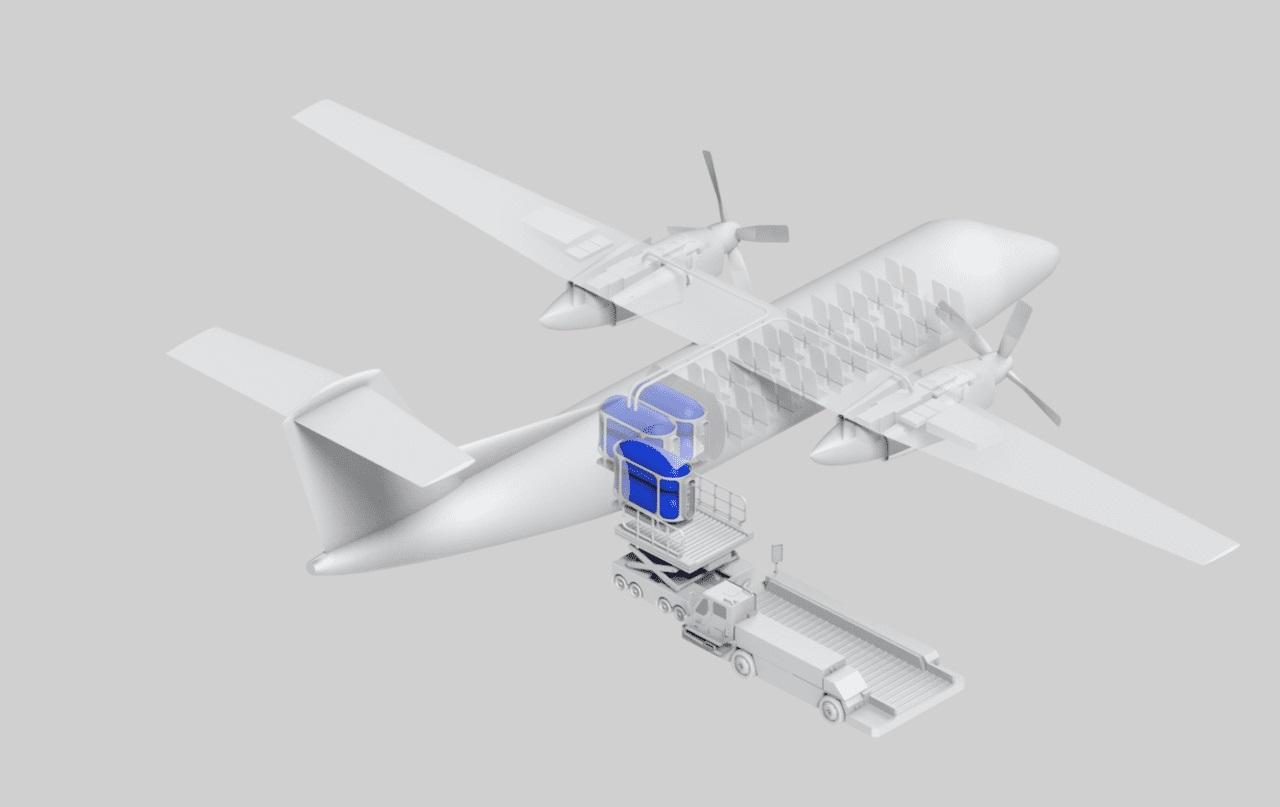
H2 is developing a modular system for distributing green hydrogen and loading it onto aircraft.
American Airlines has made a second strategic investment in hydrogen-powered aviation, backing logistics startup Universal Hydrogen.
Airbus Ventures, GE Aviation and Toyota Ventures are already strategic investors in the Los Angeles-based company.
American in August made a strategic investment in hydrogen propulsion startup ZeroAvia. That deal included a memorandum of understanding (MoU) to order up to 100 hydrogen-electric powertrains to power regional jets as early as the late 2020s.
The airline’s investment in Universal Hydrogen (UH2) is focused on its planned green hydrogen distribution network, which will use modular capsules that are handled like cargo, eliminating the need for new fueling infrastructure at airports.
To pump prime demand for its delivery service, UH2 is developing a 2-megawatt hydrogen-electric powertrain retrofit for the ATR 72 and de Havilland Canada Dash 8-300, but the agreement with American does not include propulsion unit commitments.
UH2 anticipates beginning hydrogen deliveries for regional aircraft in 2025 and plans to expand its service to single-aisle aircraft–first for auxiliary power in the late 2020s and then as a primary fuel by the mid-2030s, American said.
“Our investment in Universal Hydrogen represents a vote of confidence for green hydrogen as a key element of a sustainable future for our industry,” Derek Kerr, American chief financial officer, said in a statement.
“This move by American is a strong signal that customers want a true zero-emissions solution for passenger aviation and are willing to back tangible, pragmatic steps to get there quickly,” UH2 co-founder and CEO Paul Eremenko says.
UH2 is modifying a Dash 8 to a propulsion testbed at AeroTEC in Moses Lake, Washington, replacing one of the regional airliner’s turboprops with its hydrogen-electric powertrain. An ATR72 is undergoing modification at UH2’s engineering center in Toulouse.
Founded in 2020, UH2 is developing a logistics system that transports gaseous and liquid hydrogen from production locations to airports in reusable modules that can be shipped in standard freight containers and loaded into aircraft using available ground-handling equipment.
“We are putting together the end-to-end value chain to make hydrogen aviation a near-term commercial reality,” Eremenko says. With regional aviation as its initial target, UH2 was founded with the goal of establishing a hydrogen infrastructure for aviation ahead of Airbus or Boeing reaching a decision point on whether to develop a hydrogen-fueled airliner.
